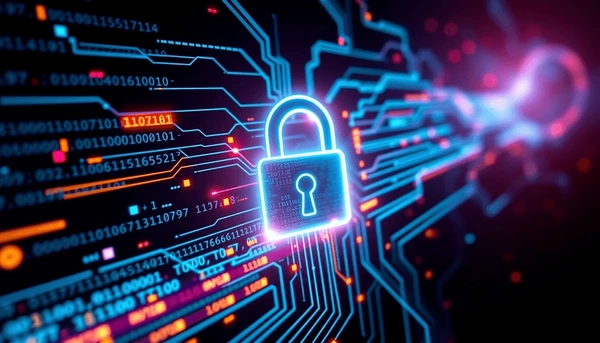When you think of cybersecurity, you might picture antivirus software scanning your computer or picking a strong password to keep hackers out. Those are important, but they’re just the tip of the iceberg. Cybersecurity today is like protecting your house: a lock on the door (password) and an alarm system (antivirus) help, but you need more to stay safe from clever thieves. Let’s explore why relying only on antivirus and passwords isn’t enough anymore and what a stronger defence looks like.
The Threats Are Smarter and Sneakier
Cyberattacks aren’t what they used to be. Hackers have levelled up, and their tricks are way more advanced than simple viruses. Here’s what we’re dealing with now:
- Sneaky Malware: Modern malware doesn’t just crash your computer. For example:
- Ransomware locks your files and demands money to unlock them. Some versions are so clever they slip past antivirus programs.
- Spyware quietly watches what you do, stealing things like your passwords or bank details without you noticing.
- Fileless Malware hides in your computer’s memory, using normal tools to do bad things, making it tough for antivirus to catch.
- Advanced Persistent Threats (APTs) are like long-term spies, sneaking into systems and stealing data slowly, often backed by big organizations or even governments.
Tricking People: Hackers know humans can be the weakest link. They use tricks like:
- Phishing, where they send fake emails or texts that look real to steal your info or get you to install malware. Some are so targeted they’re called “spear phishing.”
- Pretexting, where they make up a story to fool you into sharing sensitive details.
- Baiting, like leaving a malware-infected USB drive somewhere tempting.
Attacking Networks: Hackers also go after the systems connecting your devices:
- Denial-of-Service (DoS) attacks flood websites or systems to shut them down.
- Man-in-the-middle (MitM) attacks listen in on your communications, like sneaking into a private phone call.
- SQL Injection exploits weaknesses in websites to steal data from their databases.
- Exploiting Weak Spots: Hackers love finding bugs in software or hardware. If you don’t update your systems regularly, they can slip through these cracks. Antivirus can’t fix those holes.
Why Antivirus Isn’t Enough
Antivirus software is great for catching known viruses, but it has limits:
- It relies on a list of “bad guy” signatures. New or tweaked malware can sneak by unnoticed.
- It’s reactive, meaning it tries to clean up after something bad gets in, not always preventing it.
- It’s built to stop malware, not other dangers like phishing scams, network attacks, or sneaky insiders.
Passwords Alone Are Too Weak
Passwords are like the key to your digital life, but they’re not foolproof:
- People pick weak passwords (like “password123”), reuse them across sites, or get tricked into sharing them through phishing.
- Hackers use brute-force attacks to guess passwords by trying tons of combinations.
- Credential stuffing takes stolen passwords from one site and tries them on others.
Building a Stronger Cybersecurity Defense
To stay safe, you need a layered approach—think of it like locking your doors, adding cameras, training your family, and having a plan if something goes wrong. Here’s what a solid cybersecurity strategy includes beyond antivirus and passwords:
- Multi-Factor Authentication (MFA): This adds extra steps to log in, like a code sent to your phone or a fingerprint. Even if someone steals your password, they can’t get in without the second step.
- Firewalls: These act like gatekeepers, controlling what data comes into or leaves your network.
- Intrusion Detection and Prevention Systems (IDPS): These watch your network for suspicious activity and can block threats or alert you.
- Endpoint Detection and Response (EDR): This is like a super-smart antivirus that keeps an eye on all your devices and spots weird behavior.
- Security Awareness Training: Teaching people how to spot phishing emails or avoid shady links makes them your first line of defence.
- Regular Security Checks: Testing your systems by pretending to be a hacker helps find weak spots before the bad guys do.
- Patching Vulnerabilities: Updating software and hardware closes the gaps hackers love to exploit.
- Data Loss Prevention (DLP): This stops sensitive info, like customer data, from slipping out.
- Network Segmentation: Splitting your network into smaller parts limits how far a hacker can go if they get in.
- Incident Response Plan: A clear plan helps you react fast to a breach, reducing damage.
- Backups and Recovery: Regularly backing up data and having a way to restore systems saves you if ransomware strikes.
- Least Privilege: Only give people access to what they need for their job, so a compromised account does less harm.
- Stay Informed: Keep up with the latest threats and tips to stay one step ahead.
The Bottom Line
Antivirus and passwords are like the foundation of a house—they’re essential but not enough to keep you safe. Today’s cyber threats are too smart and varied for these basics alone. A strong cybersecurity plan uses layers of protection, from tech tools to training people and planning for the worst. It’s not a one-time fix but an ongoing effort to adapt and stay ahead of hackers. By thinking beyond antivirus and passwords, you can protect your digital world much better.





